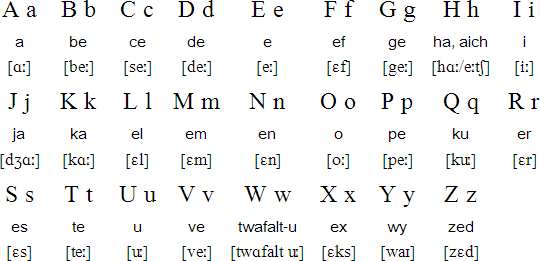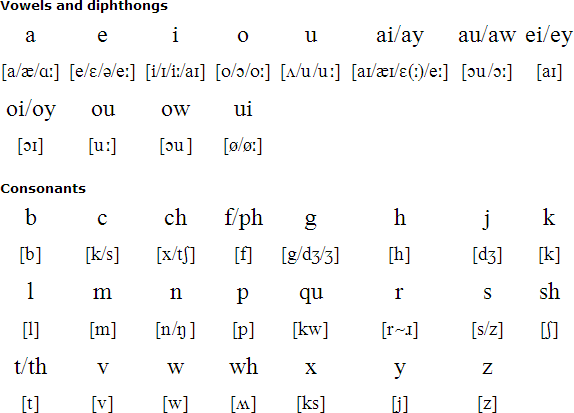Norn was a North Germanic language spoken in Shetland (Hjatland), Orkney and Caithness in mainland Scotland until the 19th century. Norn descended from Old Norse and was brought to Scotland and the islands of the North Atlantic by settlers from western parts of Norway from about 800 AD. The closet living relatives of Norn are Faroese, Icelandic and Nynorsk, the form of Norwegian based on dialects from western Norway.
Scots gradually began to replace Norn after control of Shetland and Orkney passed from Denmark to Scotland in the 15th century: Orkney in 1468 and Shetland in 1469. From 1400 many people also moved to the islands from the Scottish mainland and as Scots became the official language, Norn became marginalised as the language of poor crofters and fishermen. From 1560, when the reformation reached Scotland, new Scots-medium schools were set up in the islands, along with Scots-speaking clergy.
From 1740 an English version of the Bible was being taught in schools, and negative attitudes to Norn were becoming common. For example, grandparents refused to teach 'Dat auld dirt' to their grandchildren. By the 19th century the shift from Norn to Scots was more or less complete, except on the more isolated islands such as Foula, Unst, Yell and Fetlar, where some people knew fragments of the language, such as songs and poems until the 1890s. The last native speaker of Norn is cited as Walter Sutherland from Skaw in Unst, who died in 1850. However bits of the language, such as words for plants, animals, weather, place names, and pronunciation, continue in use in Shetlandic and the Orcadian dialect.
The oldest known inscriptions in Old Norse from Shetland and Orkney, in a Runic alphabet, date back to the 10th century. Norn first appeared in writing during the 17th century, though very few texts survive. Norn was written with the Latin alphabet using two different orthographies: one based on English and the other based on Norse.
Attempts have been made to reconstruct and revive Norn, including the Nynorn project, which aims to "re-create Norn as a usable (=living) language in order to see what it could be like had it stayed alive until our days." [Source]


Details of the Norn alphabet and pronunciation provided by Michael Peter Füstumum
Recorded in the late 1690's by James Wallace and first published in his An Account of the Islands of Orkney. London: Jacob Tonson, 1700.
Favor i ir i chimrie,
Helleur ir i nam thite,
gilla cosdum thite cumma,
veya thine mota vara gort
o yurn sinna gort i chimrie,
ga vus da on da dalight brow vora
Firgive vus sinna vora
sin vee Firgive sindara mutha vus,
lyv vus ye i tumtation,
min delivera vus fro olt ilt,
Amen.
Source: http://nornlanguage.x10.mx/index.php?ork_txt
Recorded in the 1770's by George Low. First published in his A Tour through the Islands of Orkney and Schetland. Kirkwall: William Peace, 1879.
Fy vor or er i Chimeri.
Halaght vara nam dit.
La Konungdum din cumma.
La vill din vera guerde
i vrildin sindaeri chimeri.
Gav vus dagh u dagloght brau.
Forgive sindorwara
sin vi forgiva gem ao sinda gainst wus.
Lia wus ikè o vera tempa,
but delivra wus fro adlu idlu.
For do i ir Kongungdum, u puri, u glori,
Amen
Source: http://nornlanguage.x10.mx/index.php?shet_txt_lord
Guðen dag - Good day
Hvarleðes hever du dað? - How are you doing?
Eg hev dað gott, takk, og du? - I'm fine thanks, and you?
Hvat heder du? - What's your name?
Eg hedi ... - My name is ...
Hvaðan ert du? - Where are you from?
Eg er ur Hjetlandi - I'm from Shetland.
Information about the Norn language
http://nornlanguage.x10.mx
http://en.wikipedia.org/wiki/Norn_language
http://www.orkneyjar.com/orkney/norn.htm
http://shetlopedia.com/Norn
Afrikaans, Alsatian, Bavarian, Cimbrian, Danish, Dutch, Elfdalian, English, Faroese, Flemish, Frisian (East), Frisian (North), Frisian (Saterland), Frisian (West), German, Gothic, Gottscheerish, Gronings, Hunsrik, Icelandic, Limburgish, Low German, Luxembourgish, Mòcheno, Norn, Norwegian, Old English, Old Norse, Pennsylvania German, Ripuarian, Scots, Shetland(ic), Stellingwarfs, Swabian, Swedish, Swiss German, Transylvanian Saxon, Värmlandic, Wymysorys, Yiddish, Yola, Zeelandic
Languages written with the Latin alphabet
Page last modified: 26.08.24
[top]
You can support this site by Buying Me A Coffee, and if you like what you see on this page, you can use the buttons below to share it with people you know.

If you like this site and find it useful, you can support it by making a donation via PayPal or Patreon, or by contributing in other ways. Omniglot is how I make my living.
Note: all links on this site to Amazon.com, Amazon.co.uk
and Amazon.fr
are affiliate links. This means I earn a commission if you click on any of them and buy something. So by clicking on these links you can help to support this site.
[top]